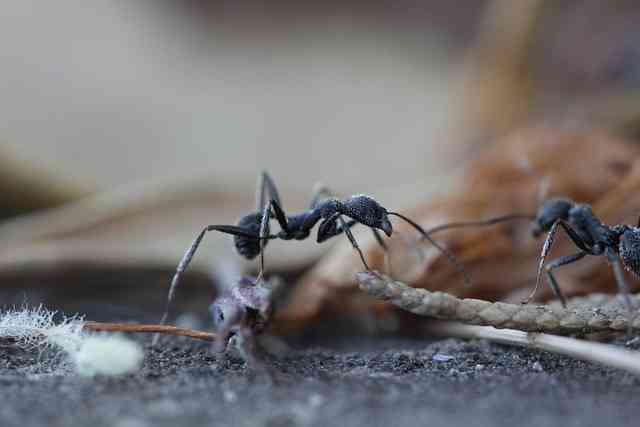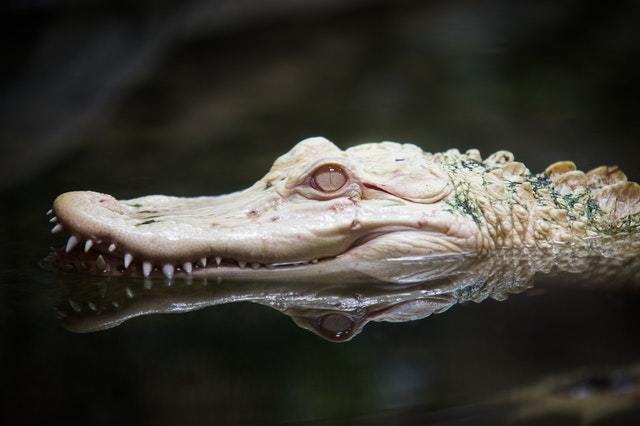Do Ants Feel Pain? (EXPLAINED)
What do you think when you squish an ant or pull off one of its legs? Will it experience pain or hurt as you would feel?
Ants do not feel pain, at least not like humans. Ants lack the complex brain and nervous system of humans. So, even though they can react to external stimuli, including those that cause pain, they do not experience pain as we do.
Ants can escape or withdraw from the source of pain (or damaging stimulus), but this doesn’t translate to pain. In this article, we’ll explore ants and their behavioral response to pain.

Do Ants Have Brains?
Ants do have a brain, just not like humans. This consists of a cluster of nerve cells and ganglia that pass through the thorax and abdomen. The brain is pretty small and is located in the head. Amongst other things, it controls the movement and behavior of the ant.
You may be wondering how ants are able to accomplish so much despite having such a small brain. Well, as indicated above, this can be traced to the ganglia.
The ganglia are found throughout the body, not just the head. One ganglion is responsible for a specific function.
For instance, it may be responsible for receiving signals from one antenna or movement of one pair of legs. With each ganglion controlling one aspect of the body, there’s less work for the brain to do. This is why ants can survive with a much smaller brain compared to other animals.
Do Ants Have Nerves?
Yes, ants have nerves. Their nervous system typically includes the brain, nerve cords, and ganglia.
The nerves perform the function of detecting stimuli and alerting the ants of any harmful change in temperature, pressure, or chemical composition of their environment. They’re also used for communication.
Like other animals, the nociceptors in ants are responsible for what you would consider as a painful stimulus. They use electrical signals to alert the ant of potentially damaging stimuli by detecting changes in the environment. The ant usually reacts by withdrawing or escaping from the stimulus, but they do not feel pain as we do.
The sensory neurons or nerves in ants might vary depending on the species, but it is believed that the number of nerve cells in their brain is up to 250,000. In comparison, human brains have over 100 billion nerve cells—that’s 100,000,000,000!
Notwithstanding, scientists still consider ants to have the largest brain among insects.
Can Ants Feel Pain?
Ants do not feel pain. They can sense damage and react to it but actually don’t experience pain in the way humans do. This is known as nociception.
So, what about when they fall? Do ants feel pain when they fall?
When an ant falls from a height, it might feel irritation and can sense if it’s damaged. However, due to the light exoskeleton they have, ants are generally capable of surviving falls from great heights. Their body is also designed to absorb shock, so falling might not cause a lot of problems.
Do Insects Feel Pain When You Kill Them?
It’s still the same idea. Stamping an ant with your feet or pressing it hard against a wall, or applying pesticide on it are all painful acts that can kill it.
While these actions are painful in themselves, it’s not clear whether it does translate to pain for the ant. But you can be sure that the ant will react to the action (pain), usually by trying to move away from the source of the pain.
In general, all insects are DEAD when you kill them. Like any other dead thing, they cannot experience pain or anything after death. But while trying to kill them, they might experience discomfort and irritation.
Can Ants Feel Heat?
Yes, ants can feel heat. This is possible because of their specialized receptors, which allow them to detect changes in temperature. This helps them to regulate their body temperature and avoid areas that are too hot or too cold.
Do ants take revenge?
Unlike humans, ants lack the cognitive ability to hold grudges or seek revenge. So they won’t try to take revenge when you hurt them.
They probably don’t even care if you exist or not. And that is because they operate on instinct and only respond to a change in their environment.
Instead of seeking revenge, the best thing ants do is to avoid the danger.
A good example is when you attack or kill an ant. When other ants discover the dead ant, they will release a substance known as pheromones to warn the colony of potential danger in the area.






